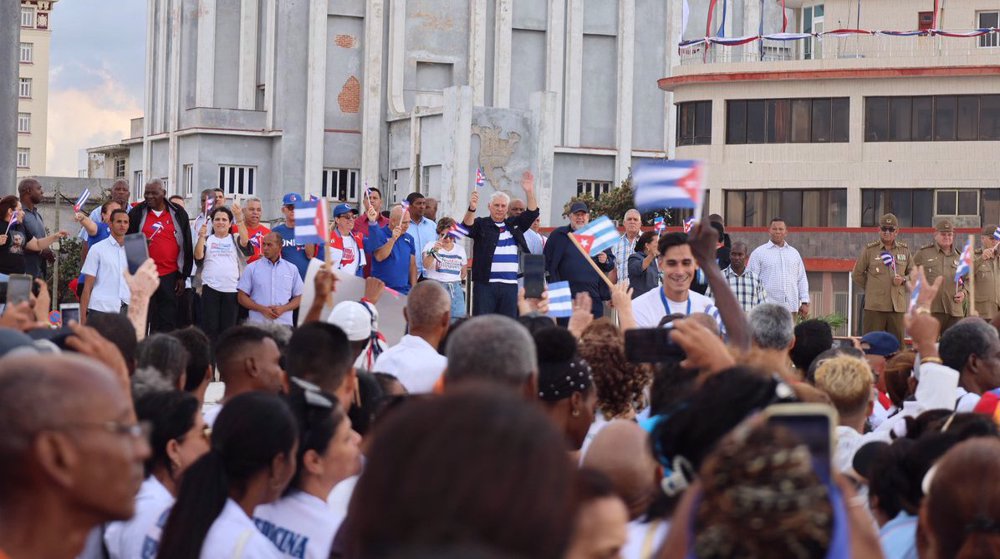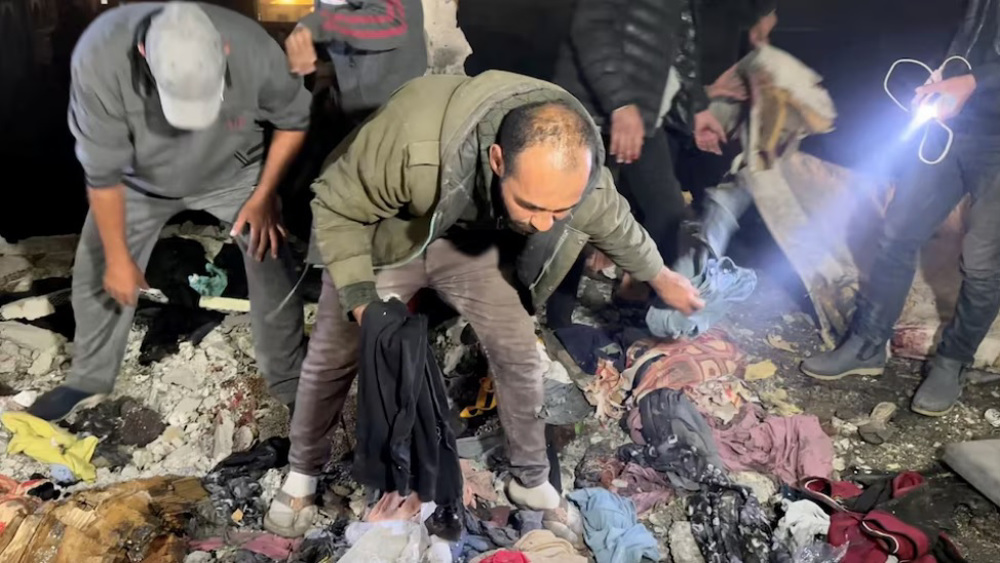Bolivian ambassador says 'soft coup' staged to topple anti-US president
Bolivian Ambassador to Tehran has told Press TV that the ongoing coup in her country is a "soft" one backed by foreign governments who wanted to see the anti-US president, Evo Morales, overthrown.
"Evidently it is a coup d'état that has been going on for a long time, but has been completed after the October elections," the ambassador said in an interview with Press TV on Monday evening.
After the October elections, she said, the opposition - knowing that it could lose the election - had basically started to say that there was a fraud in this election and ask for a second round for the elections, and then ask for the resignation of President Morales
She said the opposition has clearly been planning the coup from a long time ago with strong support from foreign countries - including the support for the opposition leader,
The ambassador noted that the ongoing coup is of a kind different from the one in 1970s when the army and military equipment were deployed in the streets and many people were killed. "It is a soft coup to change the president who is not aligned with the interests of the US."
President Morales has established sovereignty in Bolivia, ending the "robbery" of the country's resources by transnational corporations and the oligarchy, the ambassador noted.
"This is a coup that finishes with the resignation of our president, serving these foreign objectives," she added.
Morales granted asylum by Mexico
A few hours after the interview was broadcast, Morales announced on Twitter just after 9:30 p.m. (0130 GMT) on Monday nigh that he boarded a plane to Mexico, where he has been granted asylum, vowing to return "with more strength and energy."
"It hurts to leave the country for political reasons, but I will stay in touch," he said. "Soon I will return with more strength and energy."
The envoy's comments came after Latin America’s leftist governments and prominent politicians denounced the opposition-led “coup d’état” in Bolivia against the government of Evo Morales, who was forced to step down as president under pressure from the army amid violent post-election protests.
Morales — Latin America’s longest-serving president — was declared the winner of Bolivia’s October 20 presidential election.
The opposition, however, rejected the outcome and said there had been fraud in the election process. That sparked violent street protests, which left three people dead and hundreds more wounded, in what the Morales government called a coup bid.
Israel admits assassinating Hamas leader, vows to inflict same fate on Yemeni fighters, people
VIDEO | Yemeni forces repel US-British attack, down F-18 Jet
Iran’s capabilities vast; enemy’s ‘maximum pressure’ policies all failed miserably: Senior official
Iran’s economy grew 2.7% y/y in Sep quarter: CBI
VIDEO | Freelancers in Gaza strive to stay online amid genocide
Mikati demands Israel's withdrawal from south Lebanon
Yemeni army strikes Israeli military sites with drones
‘Clock ticking’: UNRWA slams unjustifiable killing of children in Gaza










 This makes it easy to access the Press TV website
This makes it easy to access the Press TV website